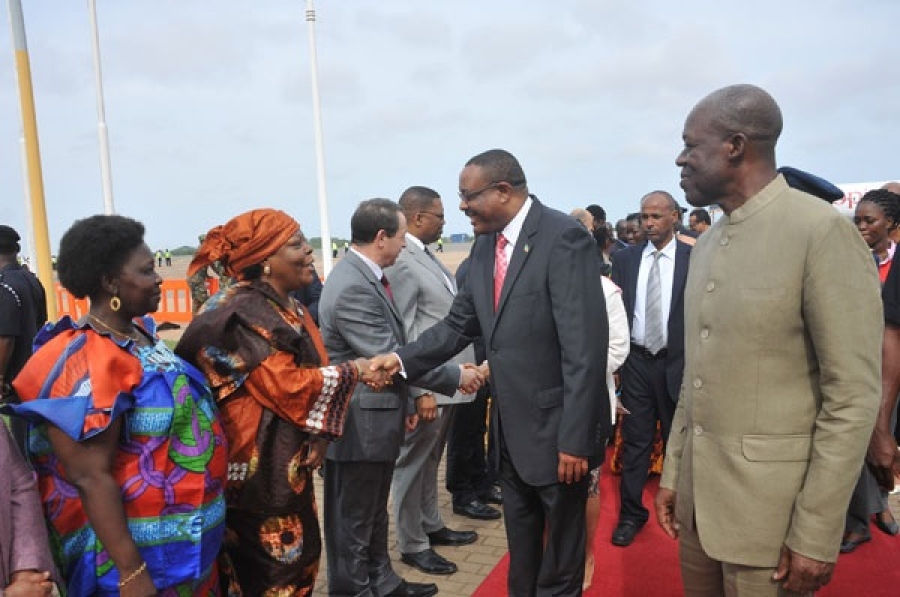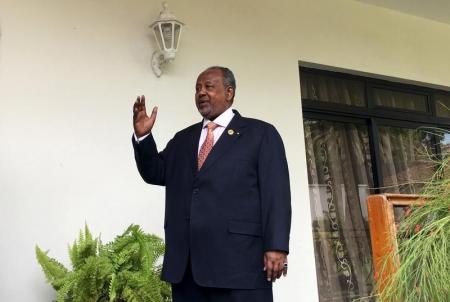More Rwandans are likely to be victims of the El Nino rains this month as those in high risk zones fail to get alternative areas to relocate to even as government continues to make calls for relocation without a specific budget plan.
Statistics from the housing authority department for human resettlement show that of the 48,000 residents living in identified high risk zones, only 42,000 residents were relocated and 6,000 are expected to be relocated this year.
Among the 6,000 Rwandans who still live in disaster-prone areas some of them have not been given practical options despite them being in the line of danger.
Residents say that the government has not given them alternative areas to shift to and this is one of the reasons they remain in the high risk zones.
Last year, Grace Murebwayire, a resident of Kivugiza, Nyarugenge sector was asked by local leaders (on phone) to move from her home after water drainages damaged the verandah putting her and family at risk.
Even though she risks losing her life, Ms Murebwayire said she has only been given the option of either moving to another place or incur the costs of constructing a stone wall to prevent her house from being carried away by floods.
“I purchased this residential house for Rwf17 million on loan and with additional renovation work the house is worth Rwf25 million. I didn’t call for the natural disaster to happen, and I have not been given a place to relocate to but asked to move?” Ms Murebwayire explained.
While budget constraints have been cited as one of the issues affecting the government’s response towards a properly outlined 2015 disaster management plan, residents say government has not treated this disaster as an eminent threat.
In response, the Ministry of Disaster Management and Refugee Affairs (Midmar) now says that disasters have been worse than last year as a result of misleading statistics on the actual numbers of people living in high risk zones.
“We have been misled in numbers and in a way we are sorry to come here and say that people are no longer living in high risk zones and yet during heavy rains people get killed in the disasters,” said Midmar minister, Seraphine Mukantabana during a press briefing this week.
Now that it is clear that some people are still living in high risk zones, the ministry says that it is going to conduct an independent research on these areas so as to come up with specific figures.
In the meantime compensation procedures have been delayed for some disaster victims and residents. Francine Mukamusonera, of Nyabisindu village, Remera sector, whose two-roomed house was destroyed in 2013 by heavy rains, will have to wait longer for any compensation despite President Paul Kagame asking local leaders to get compensation for such victims before they are relocated.
“I have not received any compensation from Gasabo district for three years now. I was only told to look for another place to move to and that I will be given a free land title,” said Ms Mukamusonera, a mother of four.
The Midmar public relations officer, Frederick Ntawukuriryayo says that though government has not specifically fixed budget allocated to disaster response, the ministry has requested for emergency funds to provide basic emergency assistance such as blankets, basins to victims; while comprehensive disaster needs assessments are done at different local levels, which may take time.
“Depending on the level of damage, the ministry can provide iron sheets in a week, but the process of assessing the damage and needs is done either at district, national or international levels which takes time,” Mr Ntawukuriryayo said.
At least 32 people and 20 animals have died, 48 people injured, while 898 houses and over 138 hectares of plantations have been destroyed between January and April countrywide.
Most of the victims in this year’s cases include those killed by floods, lightening, and mudslides among many cases and experts have also blamed the continued instances of deaths to ignorance and lack of proper evacuation skills even among those living in potentially risky areas.



